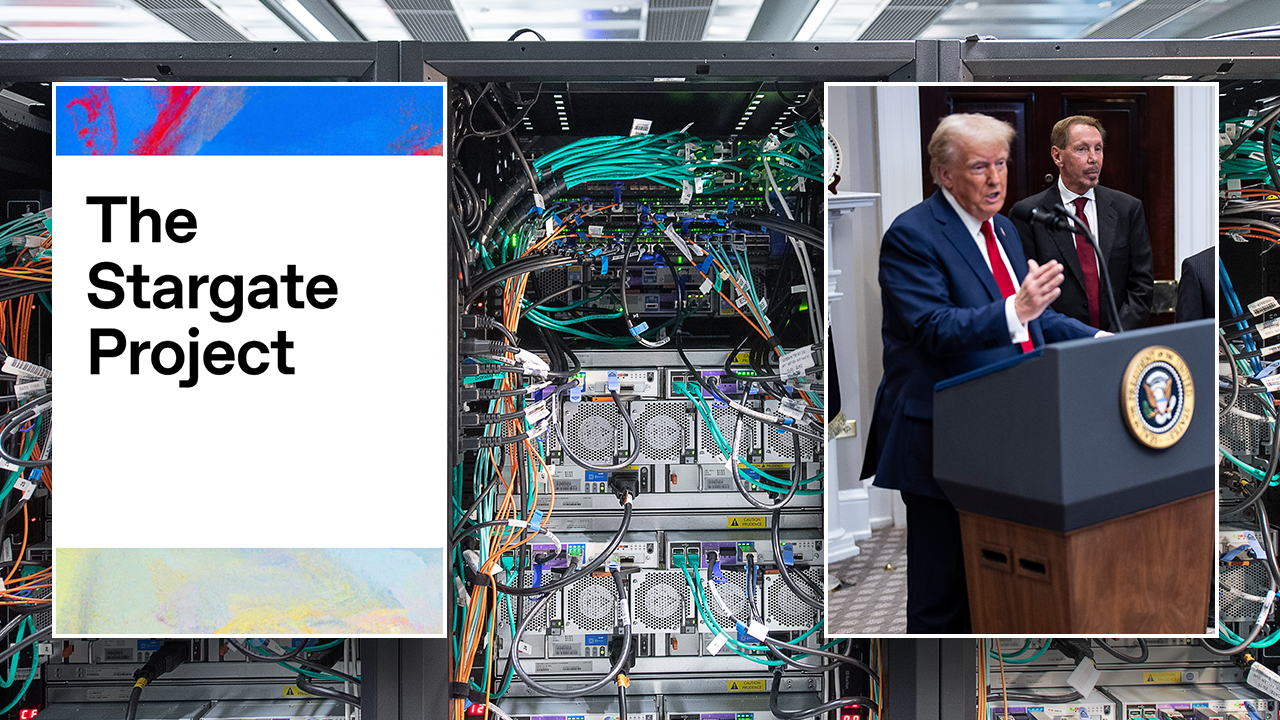Unveiling the AI Stargate Initiative: A New Era for America’s Space Ambitions
The AI Stargate Project represents a bold leap into the future of space exploration, a venture that emerged during the Trump administration and is now gaining traction with significant implications for technology and national security. As the world watches, the initiative is set to reshape the landscape of America’s space ambitions, utilizing advanced artificial intelligence to enhance our capabilities in the final frontier.
Understanding the AI Stargate Initiative
The AI Stargate Initiative aims to integrate cutting-edge artificial intelligence into various aspects of space exploration and management. This initiative is not merely about launching spacecraft but about revolutionizing how we approach data analysis, mission planning, and even extraterrestrial communication. The name “Stargate” evokes images of gateways to the stars, symbolizing an ambitious vision to propel America forward in the cosmic race.
At its core, the initiative seeks to harness AI’s potential to process vast amounts of data collected from satellites, telescopes, and robotic missions. By doing so, it aims to uncover new insights about the universe, optimize resource allocation, and improve decision-making processes in real-time. With AI’s capability to learn and adapt, the possibilities seem limitless.
Key Objectives of the AI Stargate Initiative
The AI Stargate Initiative has several key objectives that it intends to achieve:
- Enhanced Data Processing: Utilizing AI algorithms to analyze data from various missions, allowing for quicker and more accurate interpretations of astronomical phenomena.
- Autonomous Operations: Developing AI systems that can manage spacecraft autonomously, reducing the need for constant human oversight and increasing mission efficiency.
- Interplanetary Communication: Improving communication systems that rely on AI to manage and optimize data transmission between Earth and other celestial bodies.
- Predictive Analysis: Using AI to predict potential challenges in missions, from equipment failures to environmental hazards, thereby improving safety and success rates.
Technological Implications of the AI Stargate Initiative
The integration of artificial intelligence in space exploration through the AI Stargate Initiative brings forth a wealth of technological advancements. Here are some ways this initiative could transform technology:
- Machine Learning: The initiative will lead to the development of sophisticated machine learning models that could revolutionize how we extract meaning from astronomical data.
- Robotics: Enhanced AI capabilities will allow for the creation of more advanced robotic systems capable of performing complex tasks on distant planets or moons.
- Data Fusion: AI will enable the fusion of data from multiple sources, providing a comprehensive view of space phenomena and enabling better-informed decisions.
- Simulation and Modeling: Developing AI-driven simulations will allow scientists to model various scenarios, improving our understanding of potential outcomes in space missions.
National Security and the AI Stargate Initiative
One of the most pressing considerations surrounding the AI Stargate Initiative is its implications for national security. Space has increasingly become a domain of strategic importance, not just for exploration but for military and intelligence operations. The integration of AI into space systems raises a host of national security concerns:
- Space Dominance: By advancing AI capabilities in space, the U.S. can maintain its leadership in space exploration and defense, ensuring strategic advantages over potential adversaries.
- Cybersecurity: As AI systems become more prevalent, protecting these technologies from cyber threats will be paramount to safeguarding national interests.
- Surveillance and Reconnaissance: Enhanced satellite systems powered by AI can improve surveillance capabilities, providing critical information for national defense.
Expert Insights on the AI Stargate Initiative
Experts in the fields of space exploration and artificial intelligence have weighed in on the potential impacts of the AI Stargate Initiative. Dr. Emily Cartwright, a leading astrophysicist, noted, “This initiative could redefine not only how we explore space but also how we understand our place within the universe. The ability to process and analyze data at unprecedented speeds will lead to discoveries we cannot yet imagine.”
Similarly, Dr. Michael Anders, a security analyst, emphasized the need for robust policies: “While the technological benefits are immense, we must also focus on establishing ethical guidelines and security measures to prevent misuse of AI in space.” His comments underscore the delicate balance between innovation and security that the initiative must navigate.
Challenges Ahead for the AI Stargate Initiative
While the prospects of the AI Stargate Initiative are exciting, it faces several challenges that must be addressed:
- Funding and Resources: Securing adequate funding for research, development, and implementation of AI technologies will be critical to the initiative’s success.
- Technical Limitations: The technology required for advanced AI systems is still in development; overcoming these limitations will require significant investment and time.
- Inter-agency Collaboration: The initiative will require cooperation between various government agencies and private sector partners, necessitating a cohesive strategy.
The Future of Space Exploration with the AI Stargate Initiative
As the AI Stargate Initiative progresses, it is clear that the future of space exploration is on the brink of transformation. By leveraging AI, America is poised to unlock new realms of knowledge and capability. The implications of this initiative stretch far beyond mere exploration; they encompass technological advancements, national security, and an enhanced understanding of our universe.
In conclusion, the AI Stargate Initiative stands as a beacon of hope for America’s space ambitions. As we unveil this ambitious project, the partnership between artificial intelligence and space exploration will likely lead to breakthroughs that will shape generations to come. With careful planning, ethical considerations, and a commitment to innovation, America could very well lead the charge into an exciting new era of cosmic discovery.
See more Future Tech Daily

